第83章
From one of these fits of torpor, he was aroused by the entrance ofAnnie Hovenden, who came into the shop with the freedom of a customer,and also with something of the familiarity of a childish friend. Shehad worn a hole through her silver thimble, and wanted Owen torepair it.
"But I don't know whether you will condescend to such a task," saidshe, laughing, "now that you are so taken up with the notion ofputting spirit into machinery.""Where did you get that idea, Annie?" said Owen, starting insurprise.
"Oh, out of my own head," answered she, "and from something thatI heard you say, long ago, when you were but a boy, and I a littlechild. But, come! will you mend this poor thimble of mine?""Anything for your sake, Annie," said Owen Warland- "anything! evenwere it to work at Robert Danforth's forge.""And that would be a pretty sight!" retorted Annie, glancing withimperceptible slightness at the artist's small and slender frame.
"Well; here is the thimble."
"But that is a strange idea of yours," said Owen, "about thespiritualization of matter!"And then the thought stole into his mind, that this young girlpossessed the gift to comprehend him, better than all the worldbeside. And what a help and strength would it be to him, in his lonelytoil, if he could gain the sympathy of the only being whom he loved!
To persons whose pursuits are insulated from the common business oflife- who are either in advance of mankind, or apart from it- thereoften comes a sensation of moral cold, that makes the spirit shiver,as if it had reached the frozen solitudes around the pole. What theprophet, the poet, the reformer, the criminal, or any other man,with human yearnings, but separated from the multitude by a peculiarlot, might feel, poor Owen Warland felt.
"Annie," cried he, growing pale as death at the thought, "howgladly would I tell you the secret of my pursuit! You, methinks, wouldestimate it rightly. You, I know, would hear it with a reverencethat I must not expect from the harsh, material world.""Would I not! to be sure I would!" replied Annie Hovenden,lightly laughing. "Come; explain to me quickly what is the meaningof this little whirligig, so delicately wrought that it might be aplaything for Queen Mab. See; I will put it in motion.""Hold," exclaimed Owen, hold!"Annie had but given the slightest possible touch, with the point ofa needle, to the same minute portion of complicated machinery whichhas been more than once mentioned, when the artist seized her by thewrist with a force that made her scream aloud. She was affrighted atthe convulsion of intense rage and anguish that writhed across hisfeatures. The next instant he let his head sink upon his hands.
"Go, Annie," murmured he, "I have deceived myself, and mustsuffer for it. I yearned for sympathy- and thought- and fancied- anddreamed- that you might give it me. But you lack the talisman,Annie, that should admit you into my secrets. That touch has undonethe toil of months, and the thought of a lifetime! It was not yourfault, Annie- but you have ruined me!"Poor Owen Warland! He had indeed erred, yet pardonably; for ifany human spirit could have sufficiently reverenced the processes sosacred in his eyes, it must have been a woman's. Even AnnieHovenden, possibly, might not have disappointed him, had she beenenlightened by the deep intelligence of love.
The artist spent the ensuing winter in a way that satisfied anypersons, who had hitherto retained a hopeful opinion of him, that hewas, in truth, irrevocably doomed to inutility as regarded theworld, and to an evil destiny on his own part. The decease of arelative had put him in possession of a small inheritance. Thusfreed from the necessity of toil, and having lost the steadfastinfluence of a great purpose- great, at least, to him- he abandonedhimself to habits from which, it might have been supposed, the meredelicacy of his organization would have availed to secure him. Butwhen the ethereal portion of a man of genius is obscured, theearthly part assumes an influence the more uncontrollable, because thecharacter is now thrown off the balance to which Providence had sonicely adjusted it, and which, in coarser natures, is adjusted by someother method. Owen Warland made proof of whatever show of bliss may befound in riot. He looked at the world through the golden medium ofwine, and contemplated the visions that bubble up so gaily aroundthe brim of the glass, and that people the air with shapes of pleasantmadness, which so soon grow ghostly and forlorn. Even when this dismaland inevitable change had taken place, the young man might stillhave continued to quaff the cup of enchantments, though its vapordid but shroud life in gloom, and fill the gloom with spectres thatmocked at him. There was a certain irksomeness of spirit, which, beingreal, and the deepest sensation of which the artist was now conscious,was more intolerable than any fantastic miseries and horrors thatthe abuse of wine could summon up. In the latter case, he couldremember, even out of the midst of his trouble, that all was but adelusion; in the former, the heavy anguish was his actual life.
From this perilous state, he was redeemed by an incident which morethan one person witnessed, but of which the shrewdest could notexplain nor conjecture the operation on Owen Warland's mind. It wasvery simple. On a warm afternoon of Spring, as the artist sat amonghis riotous companions, with a glass of wine before him, a splendidbutterfly flew in at the open window, and fluttered about his head.
"Ah!" exclaimed Owen, who had drunk freely, "are you alive again,child of the sun, and playmate of the summer breeze, after your dismalwinter's nap! Then it is time for me to be at work!"And leaving his unemptied glass upon the table, he departed, andwas never known to sip another drop of wine.